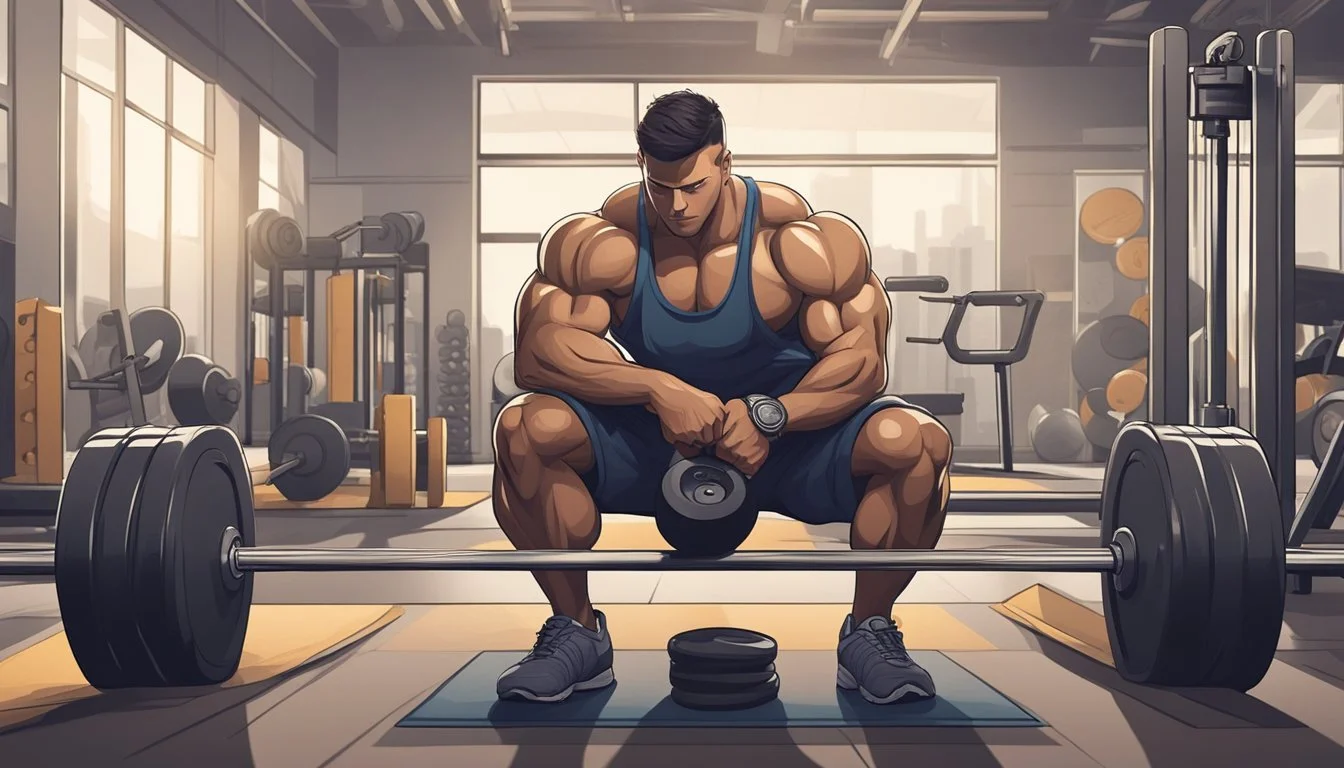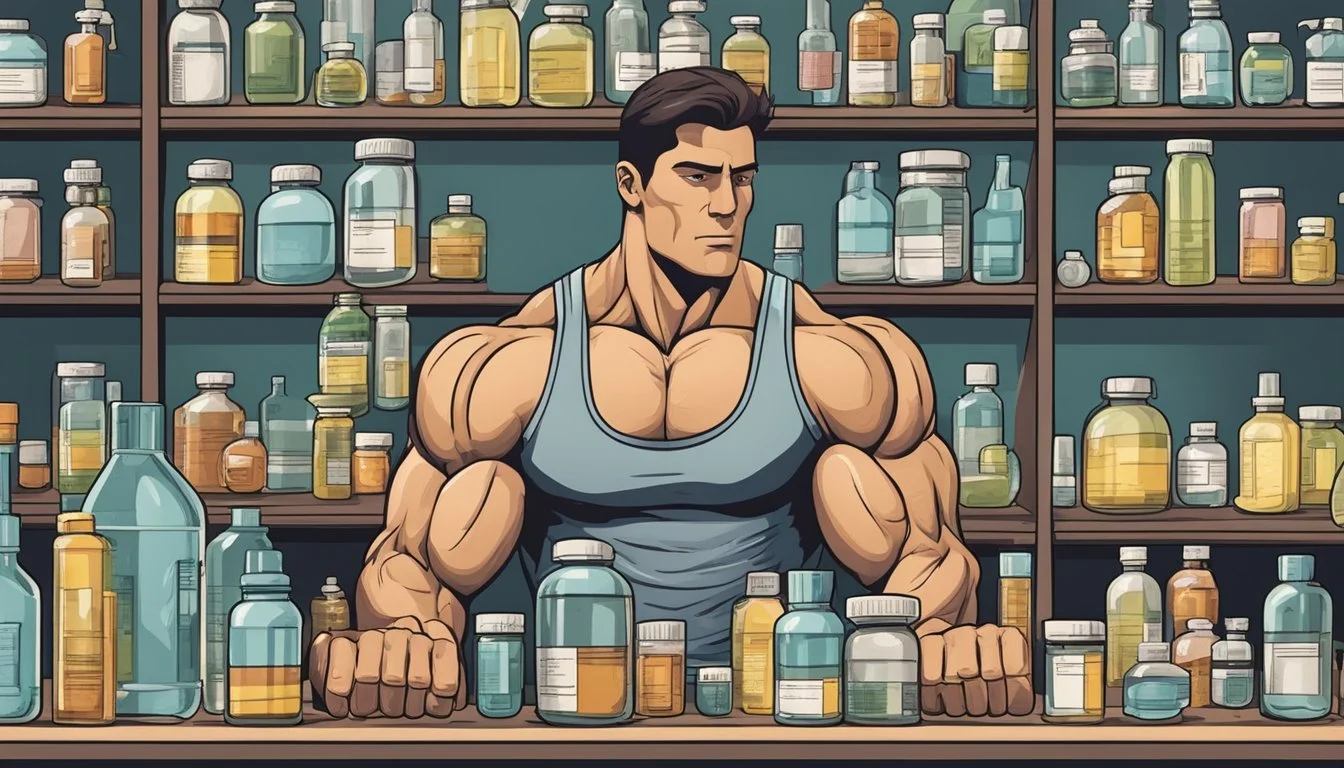Joe Rogan's Shocking Hormone Regimen: Is He Really on Steroids?
Joe Rogan, renowned podcast host and UFC commentator, has long been the subject of speculation regarding steroid use. His muscular physique and open discussions about performance enhancement have fueled this debate for years.
While Joe Rogan has not used steroids for bodybuilding purposes, he openly admits to utilizing testosterone replacement therapy (TRT) and other hormone treatments under medical supervision. Rogan has been transparent about his hormone regimen, which includes low doses of testosterone, human growth hormone (HGH), and insulin-like growth factor 1 (IGF-1) to combat age-related deficiencies.
Rogan's approach to fitness and hormone optimization has garnered significant attention. His candid conversations on the Joe Rogan Experience podcast have sparked discussions about the benefits and risks of hormone therapies, as well as the broader implications for health and fitness in an aging population.
Joe Rogan: Career and Public Perception
Joe Rogan has built a multi-faceted career spanning comedy, martial arts, and media. His public image is shaped by his popular podcast and physique.
Entertainment and Podcasting Achievements
Joe Rogan began his career as a stand-up comedian in the late 1980s. He gained wider recognition as the host of "Fear Factor" from 2001 to 2006.
In 2009, Rogan launched "The Joe Rogan Experience" podcast. It quickly grew to become one of the most popular podcasts globally.
The show features long-form conversations with diverse guests. Topics range from comedy and science to politics and martial arts.
In 2020, Spotify acquired exclusive rights to the podcast in a deal reportedly worth over $100 million. This move further cemented Rogan's influence in digital media.
Perceived Physical Fitness
Rogan is known for his muscular physique and commitment to fitness. He regularly discusses his workout routines and dietary habits on his podcast and social media.
His fitness regimen includes weightlifting, martial arts training, and high-intensity interval workouts. Rogan also advocates for the use of saunas and ice baths for recovery.
He has been open about his use of testosterone replacement therapy (TRT) since his mid-30s. This has led to speculation about his natural vs. enhanced muscle mass.
Rogan's physical appearance at age 56 continues to spark discussions about aging, fitness, and hormone optimization in men.
Understanding Steroids and Hormone Therapies
Steroids and hormone therapies encompass various compounds that affect the body's physiological processes. These substances can have significant impacts on muscle growth, recovery, and overall health when used properly.
Anabolic Steroids and Their Effects
Anabolic steroids are synthetic substances similar to testosterone. They promote muscle growth and enhance athletic performance. Athletes and bodybuilders often misuse these compounds to gain a competitive edge.
Side effects of anabolic steroid use can include liver damage, cardiovascular issues, and hormonal imbalances. Men may experience testicular shrinkage and breast development, while women might develop masculine traits.
Long-term use can lead to dependency and severe health complications. It's crucial to note that non-medical use of anabolic steroids is illegal in many countries.
Testosterone Replacement Therapy (TRT)
TRT is a medical treatment for individuals with low testosterone levels. It aims to restore hormone balance and alleviate symptoms like fatigue, decreased libido, and muscle loss.
Administered under medical supervision, TRT can improve quality of life for those with clinically low testosterone. Methods of administration include gels, patches, injections, and pellets.
Potential benefits of TRT include increased muscle mass, improved bone density, and enhanced mood. However, it requires regular monitoring to prevent side effects such as sleep apnea or prostate issues.
Human Growth Hormone (HGH) and IGF-1
HGH is a hormone that stimulates growth and cell reproduction. It's naturally produced by the pituitary gland but can also be synthesized for medical use.
HGH therapy is approved for specific conditions like growth hormone deficiency and HIV-associated wasting. Some individuals use it off-label for its potential anti-aging effects.
IGF-1, or Insulin-like Growth Factor 1, is produced in response to HGH. It plays a key role in childhood growth and continues to have anabolic effects in adults.
Potential benefits of HGH therapy include increased muscle mass and reduced body fat. Risks can include joint pain, carpal tunnel syndrome, and insulin resistance.
Steroid Use Controversies in Popular Figures
Steroid use allegations have swirled around numerous public figures, particularly those known for their muscular physiques. These controversies have sparked debates about body image, athletic performance, and transparency in the entertainment industry.
Past and Present Steroid Allegations
Bodybuilding icon Ronnie Coleman faced persistent steroid rumors throughout his career. Despite his denials, many experts believe his exceptional muscle mass was unattainable without performance-enhancing drugs.
Dwayne "The Rock" Johnson has been a subject of steroid speculation due to his impressive physique. Joe Rogan publicly stated he believes Johnson uses steroids, urging him to "come clean" about it.
The fitness influencer known as Liver King admitted to steroid use in 2022 after initially claiming his muscular build was achieved naturally. This revelation damaged his credibility and led to backlash from followers.
Impacts on Public Opinion
Steroid allegations often lead to public skepticism about achievable fitness goals. Many people feel misled when celebrities present unrealistic body standards without disclosing potential steroid use.
These controversies can erode trust in fitness influencers and Hollywood actors. Fans may question the authenticity of workout routines and diet plans promoted by figures suspected of steroid use.
On the other hand, open discussions about steroid use can educate the public on the realities of achieving certain physiques. This transparency may help set more realistic expectations for natural fitness goals.
Comparison With Other Public Figures
Chris Hemsworth's muscular transformation for his Thor role raised eyebrows in the fitness community. While he has not been directly accused of steroid use, his rapid muscle gain has been questioned.
Joe Rogan himself has been open about his use of testosterone replacement therapy and human growth hormone. This transparency sets him apart from many other public figures who avoid discussing performance enhancement.
Professional athletes face stricter scrutiny and testing for steroid use compared to actors and influencers. This discrepancy in accountability has led to calls for more honesty in the entertainment industry regarding body transformations.
Assessing Joe Rogan's Physique and Fitness Regimen
Joe Rogan's muscular build and athletic performance have sparked discussions about his fitness routine and potential supplement use. His regimen combines intense workouts, dietary discipline, and a holistic approach to health and wellness.
Diet and Exercise
Joe Rogan follows a strict diet and exercise program. He emphasizes high-protein meals with plenty of vegetables and limits carbohydrate intake. His workout routine is diverse and intense, including:
Weightlifting
Kettlebell training
Bodyweight exercises
Jiu-Jitsu practice
Hot yoga sessions
Hill running
Cardio machine workouts
This varied approach helps Rogan maintain muscle mass, flexibility, and cardiovascular health. He typically exercises 5-6 days per week, often combining multiple disciplines in a single day.
Natural Supplements Versus Performance-Enhancers
Rogan openly discusses his use of supplements. He takes:
Vitamin D
Fish oil
Multivitamins
Protein shakes
He has admitted to using testosterone replacement therapy (TRT) and human growth hormone (HGH) to combat aging effects. These are prescribed treatments, not illegal steroids. Rogan distinguishes between medical hormone therapy and steroid abuse for bodybuilding.
Influence of Genetics and Aging
Genetics play a significant role in Rogan's physique. His natural body type responds well to strength training. As he ages, Rogan has adjusted his routine to maintain muscle mass and energy levels.
He focuses on joint health and recovery to prevent injuries. This includes regular stretching, yoga, and adequate rest between workouts. Rogan's approach to fitness evolves with his age, prioritizing long-term health over short-term gains.
Steroids in the Context of Health and Competitive Sports
Steroid use intersects with health considerations and competitive sports in complex ways. The use of these substances raises questions about physical enhancement, fairness in athletics, and potential medical impacts.
Health Risks and Benefits of Steroid Use
Anabolic steroids can have both positive and negative effects on health. They may increase muscle mass and bone density, potentially benefiting individuals with certain medical conditions. However, steroid use also carries significant risks.
Long-term use can lead to liver damage, cardiovascular issues, and hormonal imbalances. Men may experience reduced sperm production and testicular atrophy. Women might develop masculine features and menstrual irregularities.
Mental health can be affected, with some users experiencing mood swings, aggression, and depression. The risk of dependency is also a concern, as some individuals may struggle to stop using steroids once they start.
Steroids in Bodybuilding and Professional Sports
Steroids have been prevalent in bodybuilding and professional sports for decades. In bodybuilding, they are often used to achieve extreme muscle growth and definition that may be unattainable through natural means alone.
Many professional athletes have turned to steroids to enhance performance, recover faster from injuries, and gain a competitive edge. This practice has led to numerous scandals and stricter drug testing protocols in various sports.
The use of steroids in these contexts has created a divide between "natural" and "enhanced" athletes. Some organizations now host separate competitions for drug-free participants to promote fair competition.
Performance Enhancement and Ethical Considerations
The use of steroids for performance enhancement raises significant ethical questions. Critics argue that it provides an unfair advantage and goes against the spirit of fair competition.
There are concerns about the pressure on athletes to use steroids to remain competitive, potentially jeopardizing their health. This pressure can extend to younger athletes, who may feel compelled to use steroids to advance their careers.
Some argue for a more nuanced approach, suggesting that controlled use under medical supervision could level the playing field. Others maintain that any use of performance-enhancing substances undermines the integrity of sports.
The debate continues as sports organizations grapple with evolving technologies and substances that push the boundaries of human performance.
Alternatives to Steroid Use for Fitness Enthusiasts
Fitness enthusiasts have several options to enhance performance and build muscle without resorting to anabolic steroids. These alternatives focus on legal hormone therapies and non-steroid performance boosters that can support muscle growth and athletic goals.
Legality and Safety of Hormone Therapies
Hormone replacement therapy (HRT) offers a legal alternative for those seeking to optimize their hormone levels. Under medical supervision, individuals can receive treatments to address hormonal imbalances. Testosterone replacement therapy helps men with clinically low testosterone levels. Growth hormone therapy may be prescribed for specific medical conditions.
These treatments require a doctor's oversight and regular blood tests to ensure safety. HRT aims to restore hormones to normal physiological ranges, unlike steroid abuse which pushes levels to supraphysiological heights. When properly administered, HRT can improve energy, muscle mass, and overall well-being.
Non-Steroid-Based Performance Enhancements
Several non-steroid options can boost athletic performance and muscle growth. Creatine supplements increase muscle energy and power output during weight training. Beta-alanine enhances muscular endurance. Protein powders and amino acid supplements support muscle recovery and growth.
Nootropics like caffeine and L-theanine can improve focus and workout intensity. Proper nutrition, including adequate protein intake and nutrient timing, plays a crucial role in muscle development. Advanced training techniques such as periodization and progressive overload maximize muscle hypertrophy without drugs.
Sleep optimization and stress management also contribute significantly to hormone balance and muscle growth. These natural methods, while not as dramatic as steroid use, offer safer long-term approaches to fitness goals.





